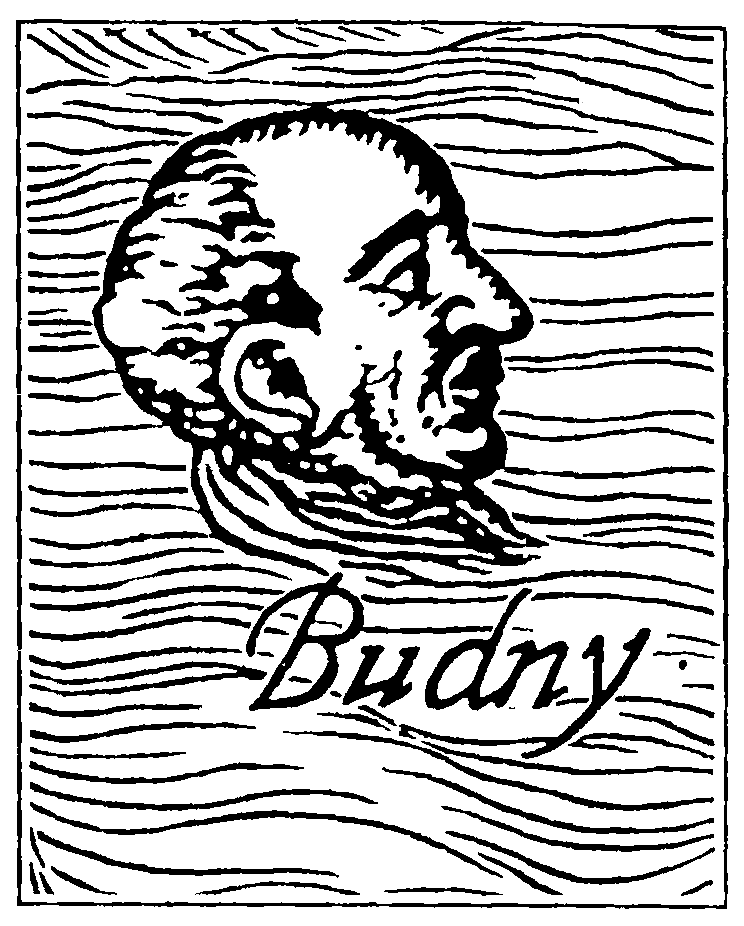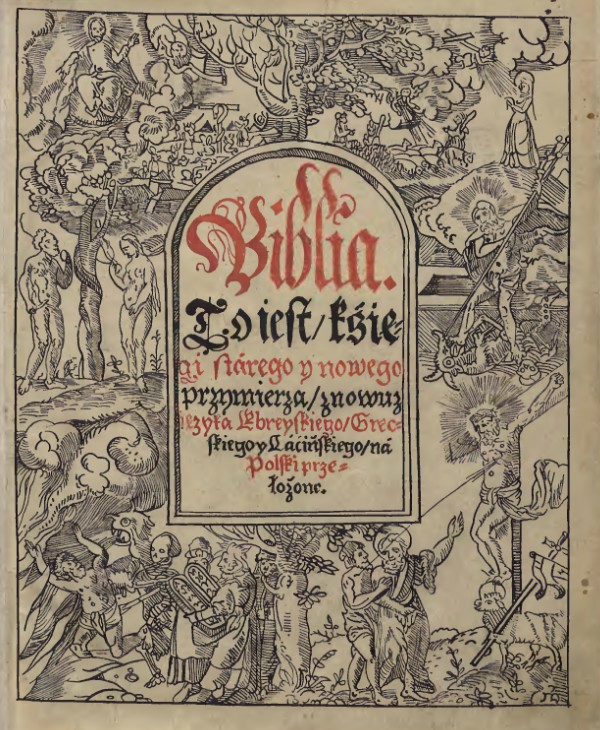Symon Budny on:
[Wikipedia]
[Google]
[Amazon]
 Szymon Budny or Symon Budny (, , ; c.1533, Budne – 13 January 1593, Vishnyeva) was a Polish- Belarusian humanist, educator, Hebraist, Bible translator, Protestant reformer, philosopher, sociologist and historian, active in the territory of the
Szymon Budny or Symon Budny (, , ; c.1533, Budne – 13 January 1593, Vishnyeva) was a Polish- Belarusian humanist, educator, Hebraist, Bible translator, Protestant reformer, philosopher, sociologist and historian, active in the territory of the
 Budny was one of the first ideologists of the development the Belarusian culture in its native language, and had notable influence on the development of Belarusian national consciousness. In his ''Cathechesis'' (printed in 1562, Niasvizh, in Belarusian) Budny follows Francysk Skaryna in using native Belarusian speech to explain Christianity.
:"So that his Ducal Highness should not only enjoy foreign languages, but also would fall in love with the ancient Slavic language and enjoy it too... And so that all others would follow this good example and the Fatherland and its native language would have future and hope".The 16th-century prints of Budny and Cathehesis in this page are taken from: "Niasvizh" photoalbum in English, Polish and Belarusian - Ed.: Mikalaj Dzeliankouski, text by Valery Dranchuk, photos by Valiancin Zhdanovich, Publishing house "Belarus", 2000.
Budny was one of the first ideologists of the development the Belarusian culture in its native language, and had notable influence on the development of Belarusian national consciousness. In his ''Cathechesis'' (printed in 1562, Niasvizh, in Belarusian) Budny follows Francysk Skaryna in using native Belarusian speech to explain Christianity.
:"So that his Ducal Highness should not only enjoy foreign languages, but also would fall in love with the ancient Slavic language and enjoy it too... And so that all others would follow this good example and the Fatherland and its native language would have future and hope".The 16th-century prints of Budny and Cathehesis in this page are taken from: "Niasvizh" photoalbum in English, Polish and Belarusian - Ed.: Mikalaj Dzeliankouski, text by Valery Dranchuk, photos by Valiancin Zhdanovich, Publishing house "Belarus", 2000.
 However subsequently Budny surrendered and started to write in Polish. He tried to justify it by saying:
: ''Głupstwo to jest mową jednej krainy gardzić, a drugiej słówka pod niebiosa wynosić''.
: "It is folly to scorn the language of one country, and praise the tongue of another up to the heavens".
He translated the
However subsequently Budny surrendered and started to write in Polish. He tried to justify it by saying:
: ''Głupstwo to jest mową jednej krainy gardzić, a drugiej słówka pod niebiosa wynosić''.
: "It is folly to scorn the language of one country, and praise the tongue of another up to the heavens".
He translated the
 Szymon Budny or Symon Budny (, , ; c.1533, Budne – 13 January 1593, Vishnyeva) was a Polish- Belarusian humanist, educator, Hebraist, Bible translator, Protestant reformer, philosopher, sociologist and historian, active in the territory of the
Szymon Budny or Symon Budny (, , ; c.1533, Budne – 13 January 1593, Vishnyeva) was a Polish- Belarusian humanist, educator, Hebraist, Bible translator, Protestant reformer, philosopher, sociologist and historian, active in the territory of the Polish–Lithuanian Commonwealth
The Polish–Lithuanian Commonwealth, also referred to as Poland–Lithuania or the First Polish Republic (), was a federation, federative real union between the Crown of the Kingdom of Poland, Kingdom of Poland and the Grand Duchy of Lithuania ...
. He was one of the first to promote the development of Belarus
Belarus, officially the Republic of Belarus, is a landlocked country in Eastern Europe. It is bordered by Russia to the east and northeast, Ukraine to the south, Poland to the west, and Lithuania and Latvia to the northwest. Belarus spans an a ...
ian culture in the Belarusian language
Belarusian (, ) is an East Slavic languages, East Slavic language. It is one of the two Languages of Belarus, official languages in Belarus, the other being Russian language, Russian. It is also spoken in parts of Russia, Lithuania, Latvia, Polan ...
. He was one of the leaders of the Polish Brethren.
Place of birth
Little is known about his place of birth. Though the common assumption is that he was born in Budne, Podlaskie Voivodeship, it is known that there were over 140 places with a similar name on the territory ofBelarus
Belarus, officially the Republic of Belarus, is a landlocked country in Eastern Europe. It is bordered by Russia to the east and northeast, Ukraine to the south, Poland to the west, and Lithuania and Latvia to the northwest. Belarus spans an a ...
. Though what is known is that he was familiar with the Belarusian culture
Belarusian culture is the product of a millennium of development under the impact of a number of diverse factors. These include the Geography of Belarus, physical environment; the ethnographic background of Belarusians (the merger of Slavic new ...
first-hand and dedicated a big part of his life to promoting it. The family he was born into was a minor Belarusian szlachta. Symon Budny originally identified himself as a Litvin, which then was the term used mostly to describe Belarusians
Belarusians ( ) are an East Slavs, East Slavic ethnic group native to Belarus. They natively speak Belarusian language, Belarusian, an East Slavic language. More than 9 million people proclaim Belarusian ethnicity worldwide. Nearly 7.99&n ...
.
Christology
Symon Budny was an early figure in the party in the Radical Reformation which utterly denied the divinity of Jesus Christ. Budny, along with the Greek Unitarian Jacobus Palaeologus, and the Hungarian Ferenc David, denied not just the pre-existence of Christ, which is what distinguished " Socinian" from " Arian" belief, but Budny, Paleologus and David went further and also denied invocation of Christ. Among these three Budny also denied the virgin birth. According to Wilbur (1947) it was his strong stance against the worship of and prayer to Christ that brought a separation with those like Marcin Czechowic who considered the views of Budny, Paleologus, and David as a revival of the Ebionite position and a form of Judaizing, and resulted in Budny's excommunication from the Minor Reformed Church of Poland, though subsequent Eastern European historians consider that in Budny's case it may have been on account of his note in the Belarusian New Testament stating that Jesus was Joseph's son, as much as the better known in the West letter to Fausto Sozzini (1581) to which Sozzini's answer is preserved in Volume II of the '' Bibliotheca Fratrum Polonorum'' printed by Sozzini's grandson in Amsterdam, 1668.Budny and rabbinical commentary
For all that Budny was accused of "Judaizing" by Czechowic and Sozzini, and excommunicated from the Polish-Lithuanian-Belarusian Unitarian community, Budny was still regarded as a Christian adversary in the polemical work ''Chizzuk Emunah'' (“Strengthened Faith”) of Isaac Troky, who made counter-use of Budny's historical-critical biblical exegesis.Political views
Budny supported the limited educated monarchy concept of the state (with Andrzej Frycz Modrzewski), which would enable the development of theSejm
The Sejm (), officially known as the Sejm of the Republic of Poland (), is the lower house of the bicameralism, bicameral parliament of Poland.
The Sejm has been the highest governing body of the Third Polish Republic since the Polish People' ...
.
Gregory Paul of Brzeziny (Gregorius Paulus) and Palaeologus had been involved in a long heated exchange over the role of the Christian in the state since 1572, which had been kept unpublished. Though Marcin Czechowic in Dialogue XII of his ''Christian Colloquies'', took Grzegorz Paweł z Brzezin's non-violent position. In 1580 Budny, then the leading minister among the socially conservative Lithuanian Brethren, published the whole correspondence, including Palaeologus' taunts of the pacifist position of the ''Ecclesia Minor'' Polish Brethren in his ''Defensio''. The Polish brethren then asked Grzegorz Paweł z Brzezin to write a reply but he excused himself on the grounds of ill health, and the task fell to the then 41-year-old Fausto Sozzini, which he did and published a defence of conscientious objection and separation from the state in 1581.
Belarusian language
Polish language
 However subsequently Budny surrendered and started to write in Polish. He tried to justify it by saying:
: ''Głupstwo to jest mową jednej krainy gardzić, a drugiej słówka pod niebiosa wynosić''.
: "It is folly to scorn the language of one country, and praise the tongue of another up to the heavens".
He translated the
However subsequently Budny surrendered and started to write in Polish. He tried to justify it by saying:
: ''Głupstwo to jest mową jednej krainy gardzić, a drugiej słówka pod niebiosa wynosić''.
: "It is folly to scorn the language of one country, and praise the tongue of another up to the heavens".
He translated the Bible
The Bible is a collection of religious texts that are central to Christianity and Judaism, and esteemed in other Abrahamic religions such as Islam. The Bible is an anthology (a compilation of texts of a variety of forms) originally writt ...
into Polish, known in Poland today as the Biblia Nieświeska ( Nesvizh Bible), since it was translated 1568-1572 at Nesvizh (Polish: Nieśwież). As changes were introduced in the printing a second edition of New Testament
The New Testament (NT) is the second division of the Christian biblical canon. It discusses the teachings and person of Jesus in Christianity, Jesus, as well as events relating to Christianity in the 1st century, first-century Christianit ...
appeared in 1574. His former colleague Marcin Czechowic produced his own Polish New Testament in Lublin
Lublin is List of cities and towns in Poland, the ninth-largest city in Poland and the second-largest city of historical Lesser Poland. It is the capital and the centre of Lublin Voivodeship with a population of 336,339 (December 2021). Lublin i ...
in 1577.
Works
* He published theOld Testament
The Old Testament (OT) is the first division of the Christian biblical canon, which is based primarily upon the 24 books of the Hebrew Bible, or Tanakh, a collection of ancient religious Hebrew and occasionally Aramaic writings by the Isr ...
and New Testament (Biblia Nieświeska) with commentaries and notes in Polish ( Zasłaŭje, Belarus 1572), which contained an early radical rationalist critique of the Gospels, and showed some knowledge of the Talmud
The Talmud (; ) is the central text of Rabbinic Judaism and the primary source of Jewish religious law (''halakha'') and Jewish theology. Until the advent of Haskalah#Effects, modernity, in nearly all Jewish communities, the Talmud was the cen ...
.
* ''Catechism'' The work is written in the then common form of questions and answers, and consists of four sections: on 10 Amendments, on the symbol of belief, about praying to God and on the rituals.
* ''O opravdanii greshnogo cheloveka pred Bogom'' ("On the justification of sinful men in front of God"). Budny is developing Protestant ideas, but also some of his Socinian ( Arian) preferences. He criticizes the conscientious objector
A conscientious objector is an "individual who has claimed the right to refuse to perform military service" on the grounds of freedom of conscience or religion. The term has also been extended to objecting to working for the military–indu ...
wing of the Polish brethren such as Marcin Czechowic who considered that a Christian cannot take part in earthly power, has no rights of ownership of land and people in his property, and can not participate in war and use sword.
Note: proper names and places’ names are rendered in BGN/PCGN.
See also
* Johann Gutenberg * Ivan Fedorov * Spiridon Sobol * Spread of the printing press * Piotr Blastus KmitaReferences
External links
* {{DEFAULTSORT:Budny, Symon 1530 births 1593 deaths People from Mońki County Polish Hebraists Polish Unitarians Polish people of Belarusian descent Translators of the Bible into Polish Belarusian Protestants Denial of the virgin birth of Jesus 16th-century Polish male writers